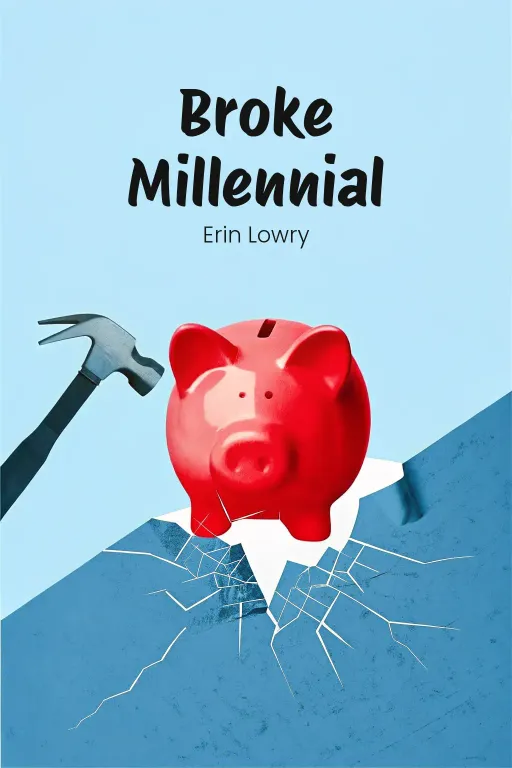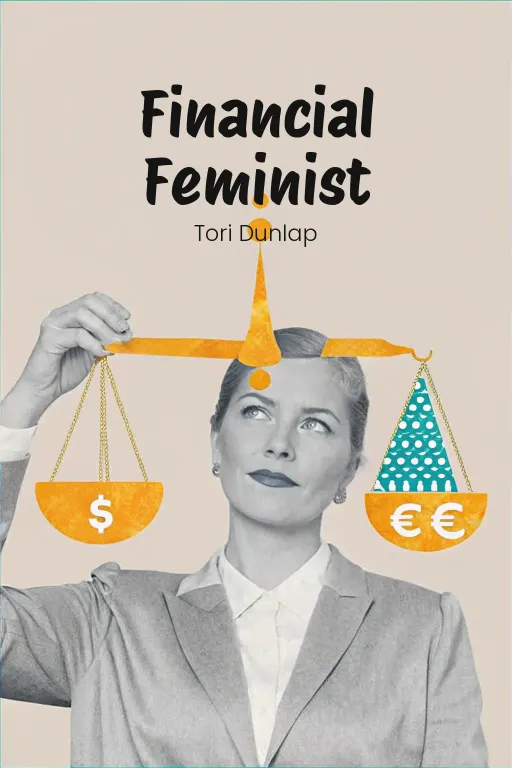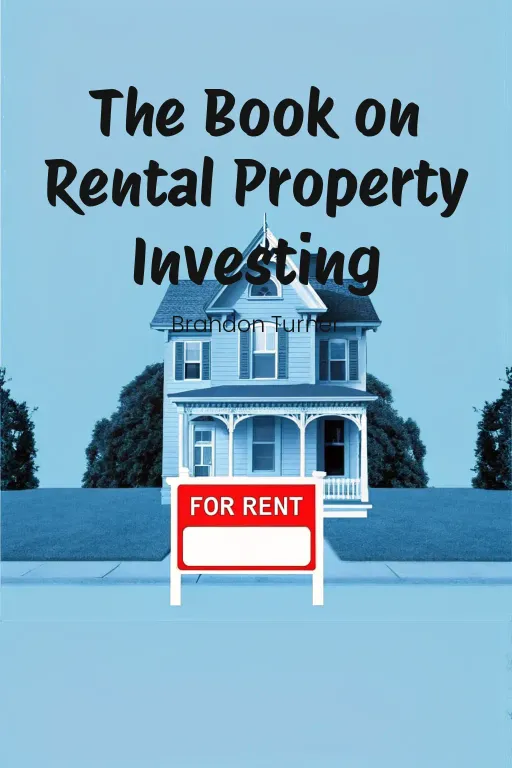
Unlock Your Money Power: 3 Steps
Podcast by Let's Talk Money with Sophia and Daniel
Master the Mindset of Wealth
Unlock Your Money Power: 3 Steps
Part 1
Daniel: Hey everyone, welcome back! Today we're diving headfirst into something that gets everyone's heart racing – money. It's kind of insane, isn't it? Just paper, or digits on a screen, and yet it has this incredible power to dictate our lives, our goals, and even how we see ourselves. Sophia: Right? It's like this constant source of low-level anxiety. Why does money feel like this unsolvable puzzle, that everyone acts like they’ve cracked, but no one actually has? Daniel: Well, that's where Jen Sincero comes in with her book, “You Are a Badass at Making Money”. It's a pretty bold title, right? But it's essentially a guide to rethinking our whole relationship with money. Sincero “really” digs into our ingrained financial baggage, offers strategies to rewire our brains, and then pushes us to take the kind of actions most people just fantasize about. It's about flipping the script on this idea of scarcity and instead seeing money as a tool. It’s not this scary monster, but something that can actually help you build a life without limits. Sophia: So, it’s a mix of self-help, brain hacking, and a hardcore financial jumpstart, but without the drill sergeant yelling in your face? Daniel: Precisely! And to get into the essence of her ideas, we're going to focus on three key takeaways. First up, rewiring your money mindset. It’s like upgrading from a rotary phone to a smartphone. You don't realize how much better it can be until you actually make the switch. Sophia: Okay, I'm listening. And then what? What kind of actionable insights are we talking about here? Daniel: Next, we'll explore taking action – the kind of bold, maybe even slightly terrifying action – that Sincero says is absolutely necessary. Because, spoiler alert, just wishing for a dream life won't magically make it happen. Sophia: Right, so no more vision boards and expecting the universe to deliver. Got it. Daniel: Exactly. And finally, we'll talk about creating the right environment for financial growth. Think of it as planting seeds in fertile soil with plenty of sunlight, instead of… well, trying to grow a garden on a parking lot. Sophia: Sounds like we've got a lot to unpack. I’m ready to dig in, but as always, I’m also ready to play devil's advocate here. Let's get started.
Transforming Your Money Mindset
Part 2
Daniel: Okay, so picking up where we left off, let's dive right into what Jen Sincero calls a “money mindset makeover.” We’re talking about identifying and really confronting those, you know, limiting beliefs we have. This is the foundation because it addresses those psychological barriers that hold us back from financial success. It's about digging deep and asking ourselves, "Why do I react to money the way I do?" Sophia: Ah, diving straight into the murky waters of our subconscious programming, are we? So, basically, we're all just walking, talking combinations of childhood trauma and societal clichés about money? I mean, come on, who hasn't heard, “Money doesn’t grow on trees”? Daniel: Exactly! Sincero points out how these sayings get embedded in our subconscious and influence our entire approach, from saving to spending. If you're told your whole life that "rich people are selfish" or "you can’t have it all," you start to see wealth as unattainable – or even undesirable. And that becomes a self-fulfilling prophecy, doesn't it? Sophia: Okay, but someone saying rich people are selfish doesn't automatically make me want to, like, sabotage my bank account. I mean, where's the direct connection? Daniel: That's a great question. Sincero explains that these beliefs often create fear or resistance, usually subconsciously. So, for example, if you link wealth to selfishness, you might avoid going after financial success because you don't want to be seen as "one of those people." Or, if you think money equals stress because your parents fought about it, you might unconsciously push it away to avoid reliving that conflict. Sophia: So, we’re walking around haunted by our childhood dinner table conversations, then? Huh. Inspiring. Daniel: It’s not all doom and gloom! The good news is, once you identify these limiting beliefs, you can start to rewrite them. Sincero suggests taking an inventory of your financial story. What phrases or situations jump out when you think about your early experiences with money? Sophia: Let’s be real. Most people digging into their financial past are unearthing anxiety and penny-pinching memories... How do you even rewrite something so deeply ingrained? Daniel: By reframing those internalized ideas. Sincero leans on tools like affirmations, which are basically positive statements you repeat to counteract negative self-talk. "I’m bad with money" becomes "I’m learning how to manage wealth joyfully and responsibly." It rewires your brain to focus on growth instead of scarcity. Sophia: Joyfully and responsibly, you say? I'd settle for just looking at my bank account without breaking into a sweat. But okay, maybe affirmations can help. What’s next in this psychological toolbox? Daniel: Visualization! Sincero really believes that imagining financial success in vivid detail can make it feel more real and, well, more achievable. Think about Jim Carrey writing himself that $10 million check, right? He didn't just hope for it -- he visualized it so clearly that it became a driving force for him. Sophia: Wait, let's break this down. Visualization isn’t some magic trick where you just picture money raining from the sky and you wake up rich. It’s more like a psychological hack to get your brain to believe your goals are, you know, attainable? Daniel: Exactly. By seeing, hearing, and feeling your success mentally, you train your brain to recognize opportunities that align with that vision. If you practice visualizing a promotion, for example, you might feel more confident pitching ideas to your boss or applying for a bigger role. Sophia: So, I picture myself lounging on a yacht with champagne, and suddenly I’m just, like, inspired to work harder? Daniel: If you want, but yes! Visualization connects your dreams to emotions, which can make them more motivating. And those emotions – especially excitement – can help drown out any fears holding you back. Sophia: Speaking of fear, I noticed Sincero spends a lot of time talking about discomfort -- and how you have to lean into it to grow. What's that about? Daniel: Great point. She says fear and excitement are like two sides of the same coin. Anytime you’re challenging your status quo – whether it’s asking for a raise or investing in yourself – it’s going to feel scary. But that discomfort is actually a sign that you're pushing past your limits, and that’s where the real growth happens. Sophia: So, in basic terms, I have to embrace being miserably uncomfortable to actually achieve anything meaningful? Daniel: Miserable? Not necessarily. Uncomfortable? Definitely. Sincero shares her own experience of investing, like, $85,000 in coaching! It seemed crazy to her at first – she didn't exactly have that kind of money just lying around. But by committing to that level of financial risk, she pushed herself beyond her comfort zone, and it ultimately paid off, big time. Sophia: And yet, most of us would freeze at the thought of spending even $5,000 on something like coaching. Isn't there a risk of the discomfort backfiring somehow? Daniel: There's always a balance. It’s not about reckless spending – it’s about strategic investments in your growth and trusting that backing yourself will yield returns. Which leads into another important tool Sincero champions: gratitude. Sophia: Ah yes, saying "thank you" to my bills. That’s the part where I get a little skeptical. Daniel: Well, it’s less about the bills themselves and more about the mindset. Sincero suggests that shifting from fear to appreciation can be powerful. For example, instead of stressing over rent, try framing it as gratitude for the roof over your head. Or think about little gestures, like placing cash in visible places as reminders of abundance. Sophia: And if I'm down to my last few dollars, what then – do I put them on display and hope they multiply through sheer willpower? Daniel: It’s not literal magic, Sophia. It’s about cultivating a positive outlook and and creating a mindset where you believe more is possible. When you focus on scarcity, your actions tend to follow that worry. But when you focus on abundance, you are more likely to notice opportunities and take steps toward them. Sophia: Alright, alright. Gratitude, affirmations, visualizations – got it. But let's be honest, is any of this really enough to counter decades of negative beliefs? Daniel: It starts with awareness, Sophia. And then it’s about consistent practice. Affirmations, visualization, and gratitude might seem small, but over time, they can actually shift those subconscious patterns, transforming both your mindset and your actions. It’s a process, not an overnight miracle, but it “really” does work. Sophia: Alright, for now, I'll consider whispering a gratitude "thank you" to my wallet and trying not to sound desperate. Baby steps, right? Daniel: Exactly. Just keep the yacht dreams alive while you’re at it.
Taking Bold Actions Toward Financial Freedom
Part 3
Daniel: Once you've started to shift your mindset, the real work begins: aligning your actions with those new beliefs. This is where the rubber meets the road—taking those brave steps towards financial freedom. It's all about bridging the gap between thinking and doing, where commitment takes center stage. Sophia: Ah, the “walk the talk” moment. So, enough with the warm and fuzzies of affirmations; now it's time to face the music, right? And by music, I mean discomfort. Daniel: Exactly. Sincero stresses that financial freedom isn’t just daydreaming, it’s doing. And let's be honest, that “doing” part often feels scary. She makes a good point: growth happens outside your comfort zone, something most of us instinctively avoid. Sophia: Well, who wouldn't? Comfort zones are named that for a reason—they are, well, comfortable. So why does she think we should be best friends with feeling uneasy? Daniel: Well, that's where the magic happens according to her. Sincero puts it really well: "Fear and excitement are two sides of the same coin." That knot in your stomach when you’re facing something scary? Honestly, it feels the same as the thrill of opportunity, just dressed up differently. She even shares her own scary leap, investing $85,000 in a mentorship program. Sophia: Wait, eighty-five grand? That's enough for a down payment on a house in some places, right? And she just handed that over for coaching? Daniel: Exactly! I was shocked too. She didn’t exactly have it lying around, but she saw it as an investment in herself. The fear wasn’t just about the money; it was about disrupting her relationships or people judging her. But by leaning into that discomfort, she proved she was worth that level of investment. Sophia: Look, I understand “no risk, no reward,” but that level of risk would send half of us straight to a therapist—a money therapist for sure. Daniel: True, but she didn’t just throw the money away. It was a calculated move. The discomfort was powerful because it forced her to commit and really show up for her financial goals. And that’s the whole point: bold moves aren’t about being reckless, but about betting on yourself and sticking to it. Sophia: Okay, but let's be real: not everyone’s got that kind of cash for coaching. How does any of this apply to regular folks trying to pay off a credit card or save for a house? Daniel: It’s scalable, thankfully. It doesn’t have to be a huge leap. It could be applying for a job that feels just out of reach, starting that side hustle you’ve always dreamed about, or facing your bad financial habits, like sticking to a budget or having an honest talk with your partner about money. Sophia: Everyday boldness, huh? Sounds less scary than that $85,000 bill. But even these tiny bold moves need a bit of courage. So what can prevent people from freezing up? Daniel: In a word: alignment. Sincero argues that when connected with genuine excitement success follows. So without passion, the discomfort of pushing forward will feel like too much, and you'll quickly burn out. Sophia: Ah, so she’s saying, “Find joy in the struggle?” Sounds… optimistic. Daniel: Well, it's more about finding what genuinely fuels you, your goals to that, and tying your goals to that energy. She talks about how reconnecting with her own creativity helped her go from struggling to abundant. If you love what you do, you’re more likely to push through anything. Sophia: Point taken. But what about people whose jobs have nothing to do with their passions, you know? Someone working a desk job just to pay the bills? Daniel: That's where reframing comes into play. Even if the job isn't ideal, you can find passion in what it enables you to do. Maybe it funds travel, provides for family, or helps you get to something bigger. Connect the "why" behind your work with what excites you, and it gives you the drive to do more. Sophia: Alright, passion fuels the grind, got it. But what about those unexpected roadblocks? Because progress isn’t always a straight line. Daniel: That’s where accountability comes in. Being an owner is a huge theme. She says the only way to truly be financially free is by acknowledging your role in your situation. Stop blaming bad luck. Recognize where you can improve and step up to it. Sophia: Meaning, if I buy takeout five nights a week and then complain about my finances, I’ve only got myself to blame? Is this just tough love now? Daniel: Pretty much! Accountability means facing the truth about your habits. Setting a budget, sticking to it, seeking professional advice… It’s all part of taking responsibility. It’s not a guilt trip, it’s about taking back control. Sophia: Okay, I can be responsible for my spending habits. But what about resilience? What about those times when you’ve done everything right, and things still go off the rails? Daniel: Great question. Resilience is key here—knowing when to fail without falling apart. Setbacks are inevitable, but they’re also opportunities to learn from our mistakes. Sincero points out that looking back after failing often leads to better strategies and solutions. It’s about bouncing back and staying focused on your long-term goals. Sophia: So, tell me, what are some tools to make this easier? Daniel: Definitely. Sincero shares actionable steps, simple things like setting clear goals with deadlines, practicing daily visualizations, and even reframing fear as empowerment. These tools reinforce the shift of mindset and makes you accountable to your actions. Sophia: Oh right, the visualization thing again. So when Jim Carrey wrote himself a $10 million check, it wasn’t just a quirky hobby; it was taking bold action? Daniel: Exactly! It wasn’t about the check itself, but about staying laser-focused on a specific, powerful goal. Anita, one of Sincero’s examples, used daily meditations and rituals while working to eliminate $75,000 in debt. It sounds out there, but her focus helped her discover resources she didn’t even know she had. Sophia: Wow, it’s like hard commitment, backed by those intentional actions, can really reshape someone’s reality. Daniel: Effective in my opinion. Financial freedom? It begins with deciding to act and having the courage to follow through, even when you're not comfortable. The real thing is trusting yourself enough to take that first step. Sophia: Alright, you’ve sold me on the “be less afraid of discomfort” concept—though I still won’t be joining an $85,000 program. Small steps, right?
Creating a Supportive Environment for Abundance
Part 4
Daniel: So, with a strong mindset and solid action steps in place, the last piece is really about creating an environment that supports you. Sophia: Yeah, Daniel, I gotta say, after all this talk about changing your thinking and being brave, I'm wondering just how much control we really have over this stuff Sincero talks about. What does she even mean by "creating a supportive environment,” anyway? Daniel: Well, it's about the spaces you're in and the people you're around. Sincero argues that both your physical surroundings and your social circles directly affect your ability to keep that abundance mindset going. And I'm not just talking about redecorating, it's a whole picture approach. Think about it like this: would you rather grow a plant in bad soil, or in rich, sunny earth? Everything grows better in the right conditions. Sophia: Wait a minute—are you saying I need to tidy up my whole life just to become richer? Like, if I clear out my closet, that's gonna help me buy a house? Daniel: In a way, yes! Sincero believes that if your space is cluttered and chaotic, that can show that you have limiting beliefs and stuck energy. She tells a story about living in a garage, which is a great picture of limited potential. By changing her space, even a little bit, it helped change her mindset to welcome abundance. Sophia: A garage, huh? What’d she do, slap a vision board up with duct tape and call it a day? Daniel: Not quite. It wasn’t just about physical changes, but about putting herself in the kind of environment she wanted. Even when she lived in East L.A., and couldn't be in her favorite places, she would drive to the beach neighborhoods on the Westside just to feel that atmosphere. Eventually, she did move into a tiny apartment right by the ocean She wasn't living luxuriously, but it matched the life she was dreaming of—waking up to the ocean breeze and all. Those little shifts made a big difference in her energy. Sophia: So, you're saying I should hang out in fancy coffee shops and pretend I fit in? Won't they kick me out? Daniel: It’s not about pretending, it’s about training your mind to see the possibilities. By being in places that reflect your goals, you’re telling yourself, "This is possible for me." Over time, that mindset makes you more likely to take action that leads to those goals. Sophia: Okay, fair enough. But let's talk about people. How do you even start making a "supportive environment" when people and their opinions can be, well ... not supportive? Daniel: That’s where things get interesting. Sincero points out that the people in your life can either fuel your dreams or crush them. If you constantly hear negativity—"That won’t work," "Be realistic," "Stick to what you know"—it’s really hard to believe in yourself and take those important risks. For example, Sincero realized that her old friends, as fun as they were, were holding her back. Their lifestyle choices just didn't line up with her money goals. Sophia: Beer bongs, huh? Sounds… good. So, what's the solution? Ditch your friends and family? That seems a bit drastic. Daniel: Not ditching, exactly, but curating. It's about being careful with how you spend your time and energy. Sincero describes how she actively looked for people who lifted her up and inspired her. In some cases, that meant joining professional groups or finding a mentor . Of course, it's uncomfortable to step outside your comfort zone, but connecting with people who see the world as you do creates a new support system from the ground up. Sophia: So what happens when your biggest critics are people you can't exactly avoid? You can’t exactly skip Thanksgiving dinner just because Uncle Joe keeps telling you to be “sensible with your money.." Daniel: That’s where you set boundaries. Sincero’s clear—it’s not always about cutting people out, but controlling how much they affect you. If someone in your life always dismisses your goals, you might need to spend less time with them or change the subject if money comes up. It’s about protecting your energy and making sure your relationships help you, not hurt you. Sophia: I see—more time with cheerleaders, less with Debbie Downers. But what if you're surrounded by the "unsupportive majority" right now? Any quick fixes for that? Daniel: Good question. Sincero suggests finding small ways to balance out the negativity. That might mean listening to podcasts, like this one, that make you feel ambitious. Or reading books, joining online groups, or even just finding motivational content to keep you on track. Think of it as making a virtual support network when you don't have one in real life yet. Sophia: Hmm. So, instead of talking to Cousin Debbie about "realistic goals," I should find some money forums and use the phrase "live your best life" way too much? Daniel: Yes! Surrounding yourself with positivity creates a shield against negativity. And, Sincero also talks about actively letting go of relationships. Sometimes, walking away from those toxic dynamics is the best thing you can do. Sophia: That's easier said than done, I think. Especially when the criticism is wrapped in advice that seems well-meaning. Daniel: I know, and Sincero admits that it can be painful, especially when the people closest to you don't get or support what you're trying to do. But in the end, putting your own growth first, even if it's not what everyone else is doing, is worth it. Over time, the benefits are way bigger than any initial discomfort. Sophia: Makes sense. But let’s talk about something you can actually touch. What about tools or habits to help change the space around you? Not just people, but real, practical things for making your daily life feel more abundant? Daniel: Loads! Sincero loves the idea of making small physical upgrades. Declutter a room, organize your desk, or surround yourself with images or quotes or plants that inspire you. She tells a story about a freelancer who fixed up her messy office. By adding light, beauty, and reminders of her goals, she became way more effective. She started asking for more money from clients, and things kicked off from there.. Sophia: So, cleaning my desk could lead to a pay raise? I like the sound of that. Daniel: It’s not about the cleaning itself, it’s about the energy. When your space feels intentional and organized, you’re telling your subconscious that you're capable and worthy. Sophia: Alright, you’ve got my attention. What's the easiest way to dive in? Because the last time I tidied up, I just found old candy wrappers. Daniel: Start small—one area, one change at a time. Maybe it's a vision board, putting fresh flowers somewhere you can see them, or just taking away anything that distracts you. And feel grateful for the space you're making, and you'll see a change not just in how it looks, but in how you feel. Sophia: A gratitude-fueled desk makeover. Go figure. But seriously, Daniel—what’s the big picture here? If someone wants to build this “supportive environment” today, where do they even begin? Daniel: Start by thinking about two things: your space and your circle. Ask yourself, do these things make me feel energized or drained? Then, take one practical step—declutter, add inspiration, or reach out to someone who inspires you. It's about building momentum, little by little. Sophia: Alright, that works for me. Though I might skip the flowers, I’m more of a poster guy.
Conclusion
Part 5
Daniel: Okay, so to bring it all together, the big lessons from “You Are a Badass at Making Money” are these. First, changing how you think about money starts with finding those beliefs that hold you back and then actively changing them. It's not just about “think positive,” it's really digging in and retraining your brain to go from “not enough” to “plenty.” Sophia: Right, and then it’s about actually doing something, right? Taking those sometimes terrifying, uncomfortable steps that connect what you want to achieve financially with what you love to do. Because, as Jen Sincero says, wishing doesn't pay the bills. You've got to get out there and put your money where your mouth is, so to speak. Daniel: Finally, setting up the right surroundings—whether it's decluttering your space, avoiding toxic people, or hanging out with people who inspire you—it all helps you grow and succeed over the long haul. Sophia: Okay, so here’s the big question for everyone listening: What's one thing you can change this week – your mindset, your actions, or your environment – that'll nudge you closer to a life of abundance? Seriously, whether it's ditching a negative thought, doing that one thing you've been putting off, or just cleaning up that disaster zone you call a desk, start somewhere. Daniel: Exactly! It's a journey, not an instant thing. But every little bit counts. Thanks for tuning in today, and remember—you're not just able to create a life of abundance; you absolutely deserve it. Sophia: And with that in mind, don’t forget the gratitude, the affirmations, and, yeah, maybe a little visualization. Oh, and definitely let us know if just hanging around fancy yacht clubs actually works. Daniel: Until next time, stay inspired, stay brave, and, as Jen Sincero would say, stay badass!









